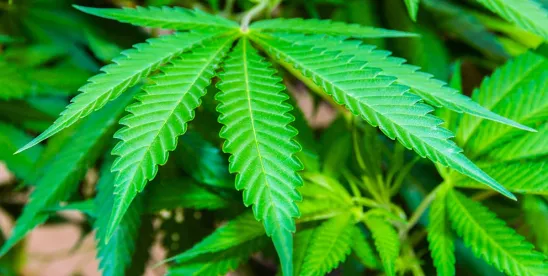On May 16, 2024, the U.S. Department of Justice announced that the Attorney General has submitted a notice of proposed rulemaking initiating a formal rulemaking process to consider moving marijuana from a Schedule I to a Schedule III controlled substance.
Regulatory Next Steps
The rescheduling of a controlled substance follows a formal rulemaking procedure that requires notice to the public, and an opportunity for comment and an administrative hearing. The Attorney General’s proposal starts the process, where the Drug Enforcement Administration (DEA) will gather and consider information and views submitted by the public, in order to make a determination about the appropriate schedule. During that process, and until a final rule is published, marijuana remains a Schedule I controlled substance. The Controlled Substances Act, passed in 1970, created five schedules of classifications of various substances, placing cannabis on Schedule I, along with heroin, LSD, and other drugs with “no currently accepted medical use or treatment” value. While reclassifying cannabis would not legalize recreational cannabis nationwide, it would place cannabis with other Schedule III drugs, including ketamine, anabolic steroids, and some acetaminophen-codeine combinations.
Implications for Employers
The DEA proposal has no immediate impact on state or federal laws regulating marijuana. Prospectively, the biggest impact may concern employers in industries, such as transportation, that perform drug testing in accordance with federal requirements. The Federal Omnibus Transportation Employee Testing Act requires all U.S. Department of Transportation (DOT) agencies to implement drug and alcohol testing requirements for “safety-sensitive” employment positions regulated by those agencies. Accordingly, employees with safety-sensitive responsibilities regulated by agencies, including the Federal Aviation Administration, Federal Motor Carrier Safety Administration, and the Federal Railroad Administration, are subject to extensive mandatory drug testing.
Safety-sensitive employees subject to mandatory testing are identified in the regulations promulgated by the various DOT agencies, but generally consist of pilots, school bus drivers, truck drivers, train engineers, subway operators, aircraft maintenance personnel, armed security personnel, ship captains, and pipeline emergency response personnel. Safety-sensitive employees are subject to pre-employment, random, reasonable suspicion, post-accident, return-to-duty, and follow-up drug testing as required and detailed by each agency’s governing regulations. The DOT currently requires drug testing for the following five drugs or classes of drugs: (a) marijuana metabolites; (b) cocaine metabolites; (c) amphetamines; (d) opioids; and (e) phencyclidine (PCP). See 49 CFR 40.82. The DOT’s authority to conduct drug testing of safety-sensitive employees is also derived from the Department of Health and Human Services Mandatory Guidelines for Federal Workplace Drug Testing Programs, which permit regulated employers to test for those drugs listed in Schedule I or II of the Controlled Substances Act.
As the regulatory process unfolds, there will likely be scrutiny placed on identifying those substances to be tested on behalf of the large universe of federally regulated safety-sensitive employees. If marijuana is moved from Schedule I to Schedule III, a classification where medical use is permitted, it remains to be seen whether the DOT would adjust compliance requirements.




 />i
/>i

